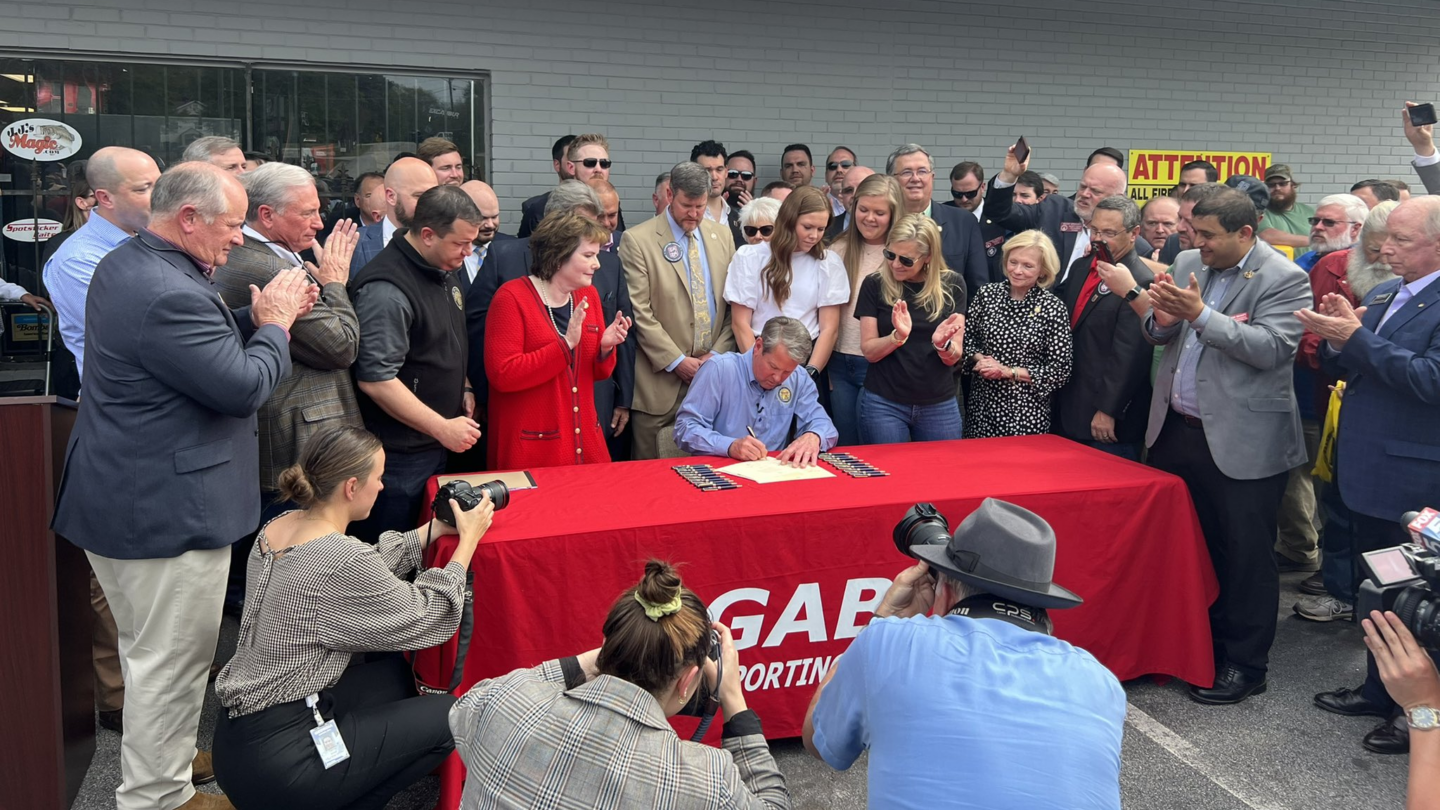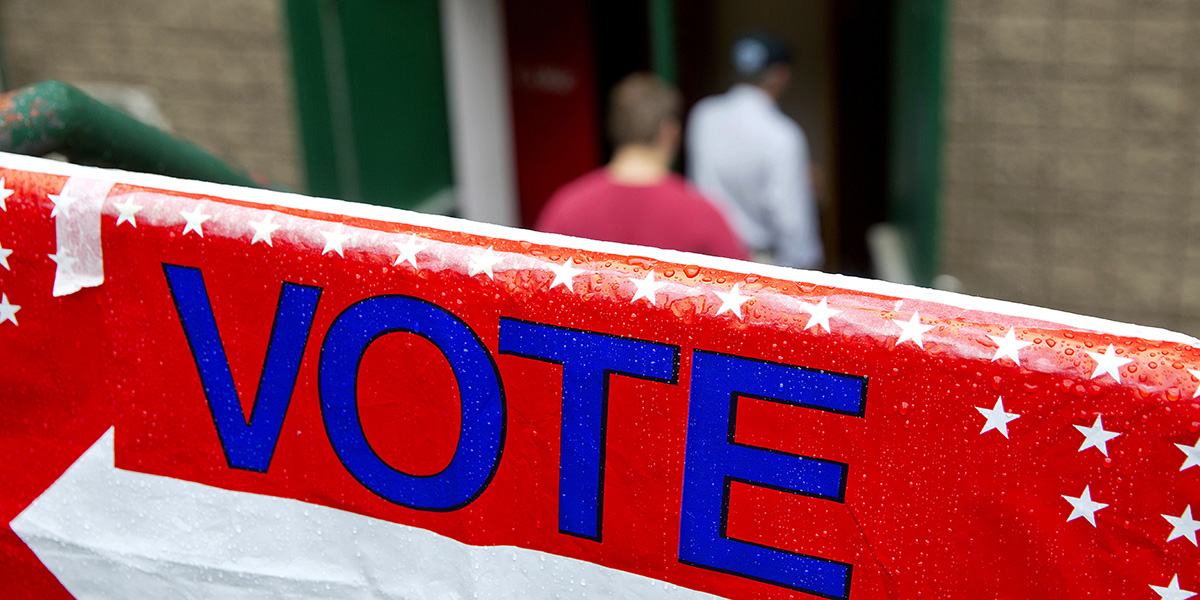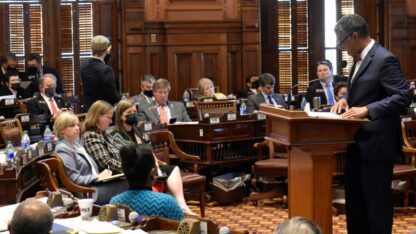Firearms licenses in Georgia plummet after 'permitless carry' law

Gov. Brian Kemp signed Senate Bill 319 into law on April 12, 2022. It allows permitless carry in Georgia, making it the 25th state with such a law. (Rahul Bali/WABE)
Roughly half as many Georgians applied for permits to carry handguns in the year since they became optional.
Twenty-eight states now have “permitless carry” laws on the books, most of which passed in the last decade. Passing “permitless carry” was a top priority for Georgia Republicans.
“Law-abiding Georgians, including our daughters and your family, too, can protect themselves without having permission from their state government,” Gov. Brian Kemp told supporters as he signed the legislation last year at Gable Sporting Goods.
According to state data from the Georgia Crime Information Center requested by WABE, 61,547 Georgians were granted licenses since the law took effect last July. That’s compared to 122,207 the year prior.
“I’ll just say, yes, it’s certainly lightened the load,” says Kevin Holder, executive director for the Council of Probate Court Judges of Georgia.
Local probate courts handle weapons permits, along with marriage licenses and probate estate filings.
Holder says some of the dropoff in weapons permits is explained by a return to normal levels after record applications during the pandemic.
“Anytime there’s a mass casualty event, anytime there’s a presidential election, anytime there’s a natural disaster,” he says. “We had pretty much a mixture of all three.”
Take Fulton County, which granted 9,659 firearms licenses in 2019 according to data from the Fulton County Probate Court, compared with 17,451 during President Biden’s first year in office in 2021.
Still, applications are now well below pre-pandemic levels.
Probate judges insist these licenses remain useful, even though they are no longer mandatory.
Licenses allow gun owners to carry firearms in other states that require licenses and have reciprocity with Georgia. Thirty-two states have reciprocity with Georgia.
And because receiving a permit requires passing a background check, permit-holders can purchase firearms from retailers without having to undergo a new background check each time.
“Even the sponsors of the bill were encouraging those who had licenses to consider continuing to get a license because it still holds utility,” Holder says.
Republican supporters say mandatory licenses only burden law-abiding citizens and most criminals will carry weapons whether they have a license or not.
Data provided by the Administrative Office of the Courts shows about 2% of applicants are denied permits annually. People with felony convictions, for example, generally are not allowed to possess firearms under federal law.
Democrats believe a mandatory permitting process is an important safeguard to flag people who are not legally allowed to possess a weapon and would otherwise never undergo a background check. Background checks are not required when a gun is purchased privately or given as a gift.
“I think we can agree that this leaves a huge hole in our safety net,” Rep. Michelle Au said at a Senate hearing last year. “With the passage of SB 319, this background check at the point of sale would be the first and only way to weed out those who should not have legal access to firearms.”
Holder, who represents the probate judges, agrees this is one implication of the legislation, but says it’s something that is difficult to quantify.








